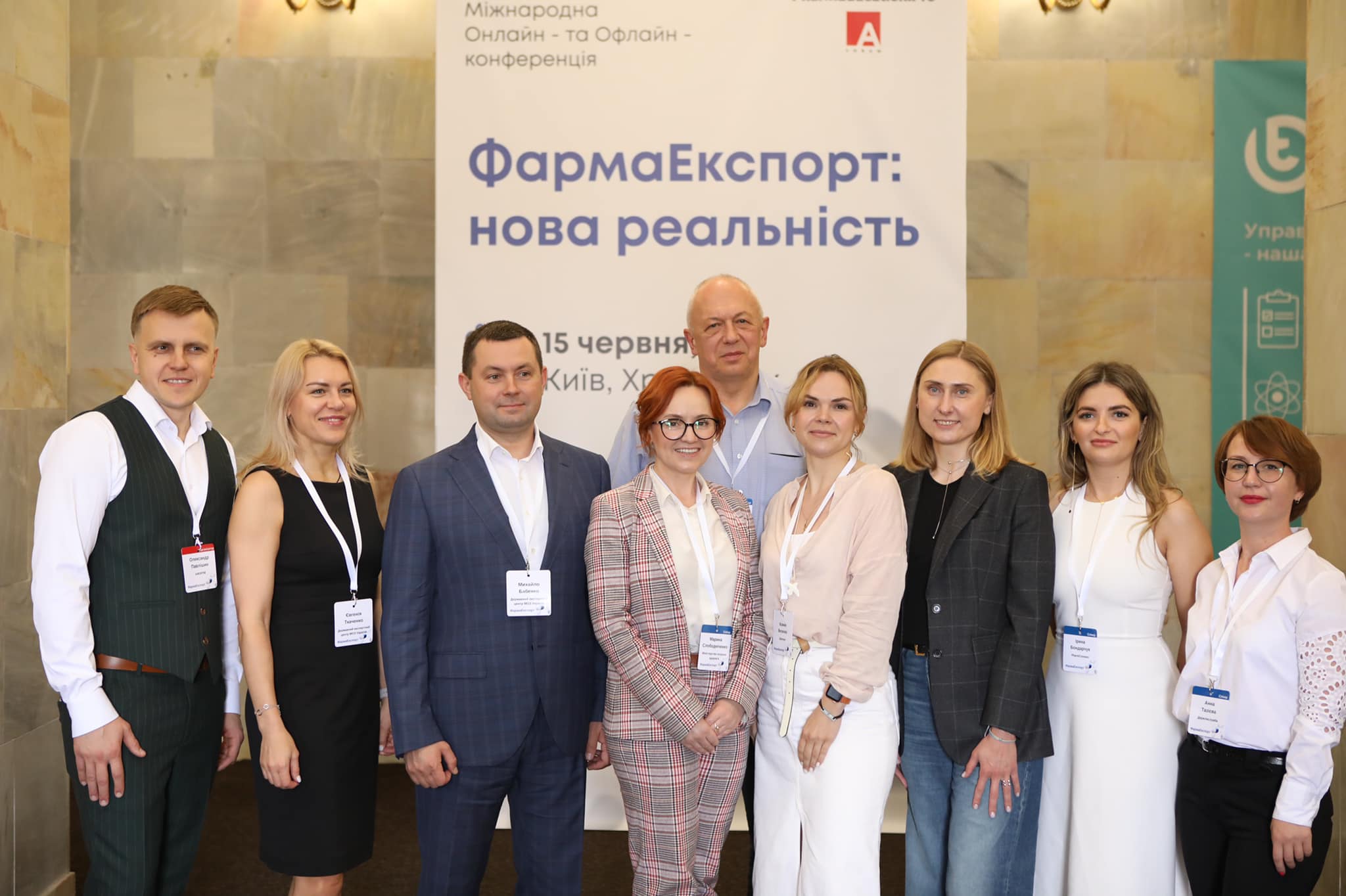

The pharmaceutical sector has been strictly adhering to the strategic vector of European integration for several years in a row. An important component of this process is the mutual recognition of GMP (Good Manufacturing Practice) certificates between the EU and Ukraine. Today, within the framework of the PharmaExport conference, representatives of the pharmaceutical business and the public sector once again discussed ways to achieve it, where Yevgeniya Piddubna, Director of Corporate Communications at Farmak, moderated the corresponding panel.
Why does the EU market today remain difficult to access for Ukrainian medicines despite the absence of tariff barriers?
Representatives of large pharmaceutical companies and members of the health committee of the SUP: Farmak, Arterium, and Darnitsa unanimously confirmed that there is export to the EU today. All three companies have products registered in the member countries of the Union, but real sales in this region can hardly be called unhindered. For a full-fledged entry into these markets, the recognition of Ukrainian GMP certificates in the EU is necessary.

What were the manufacturers-exporters talking about?
Yevgeniya Piddubna, Corporate Communications Director, Farmak:
Farmak has been exporting its products to the EU since the independence of Ukraine. In the previous year, the company had drug sales in Switzerland, Germany, Denmark, Poland, the UK, France and Portugal. This is mainly about compound medicines for the hospital sector. But while there is no single market with the Europeans, it is too early to talk about permanent exports to the EU. Moreover, after several rounds of inspections, Ukrainian medicines become more expensive by 20-50% when crossing the border of Ukraine, which significantly affects their price.
Anna Pavlyuk-Gavrylova, Head of the Department for International Registration and Entering New Markets at Darnitsa:
Today Darnitsa exports medicines to 1 EU country. But it has ambitions to expand its presence there. What would be greatly facilitated by an agreement on the recognition of Ukrainian GMP certificates. In the absence of which, the domestic manufacturer has to go through many checks when exporting to the EU. So much so that today it is more expedient for the company to look for contractors for contract manufacturing in the European Union. Moreover, it is important that the European certificate is the key in other markets of the world – the countries of America, Asia, Africa.
Serhii Sur, director for interaction with regulatory bodies of Arterium Corporation:
The planned portfolio of Arterium includes several dozen projects. The company is actively preparing for the start of registration processes in the EU. But he understands that it is important not only to register medicines in Europe, but also to be able to sell them. Serhii expressed the opinion that the guarantee of mutual recognition of GMP certificates between the EU and Ukraine is based on trust. Therefore, Ukraine needs to develop national regulatory bodies. Already now we can begin to ensure compliance with the requirements of the EU regulatory authorities, as Serbia did. To do this, we should find a curator from the regulatory authority of the EU country in order to do everything right right away.
Position of the Government on the program for the adoption of mutual recognition of GMP certificates with the EU and further steps:
Maryna Slobodnichenko, Deputy Minister of Health of Ukraine for European Integration:
Taras Kachka, Deputy Minister of Economy of Ukraine – Trade Representative of Ukraine:
Anna Tazieva, Head of the Department for Licensing the Production of Medicines, Blood and Certification.
What is our added value for the EU?
The EU wants to reduce its reliance on generic medicines and active pharmaceutical ingredients (APIs) from China and India, as the COVID-19 pandemic has shown that under crisis conditions this can lead to a shortage of key medicines in the European market.
In turn, Ukrainian pharmaceutical manufacturers are ready to become reliable suppliers of generic drugs and APIs to the EU, thereby reducing the long supply chains for these products from Asia.